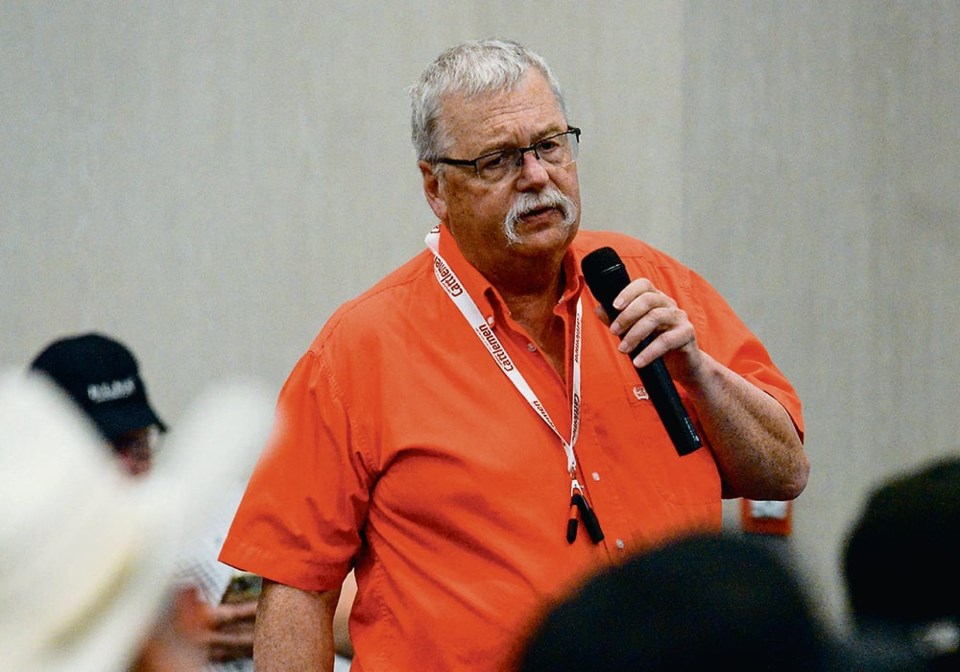WESTERN PRODUCER – Livestock producers want more details and training on proposed changes to Canada’s national livestock traceability rules so they can ensure they meet requirements.
Changes to the Health of Animals Regulations (Identification and Traceability) can have far-reaching effects on livestock business operations.
Rick Wright, chair of the Livestock Markets Association of Canada, told those at the group’s recent convention that an education program has been suggested to Dr. Heather Brown, national manager for the Canadian Food Inspection Agency’s Humane Transport and Livestock Traceability Programs.
“We requested that there be a comprehensive educational program developed targeting primary producers on the new regulations, specifically for premise ID and the use of movement documents,” said Wright.
With a few exceptions, LMAC supports the proposed updates that include shorter reporting times for animal movements and requirements for more geographical data.
However, the organization is concerned about potential loss of farm-of-origin traceability and expanded tagging site definitions to include feedlots and veterinary clinics, which could negatively affect market neutrality and travel.
“If they (feedlots) could buy the cows direct and put those tags in after the cattle have been weighed and the price has been determined, that puts them at an advantage to us having to tag them at the site before we sold them,” said Wright.
LMAC said it is better to maintain the current system of replacing missing tags with market inventory and transferring ownership to producers via the Canadian Livestock Tracking System.
“The desired outcome is that all animals are tagged at the site or before they leave, and we got a very positive response back from Dr. Brown once she understood what we were doing and how we were doing it and that it was working pretty good,” said Wright.
He expects there will be further consultation before final decisions are made on regulatory change.
LMAC also questioned why fairs, rodeos and shows are excluded from traceability reporting, but auction markets are not. Considering the number of animals involved, such events can be considered at the same level of risk as auction markets.
Wright listed high-volume national livestock events such as Farmfair International, Canadian Western Agribition and the Royal Winter Agricultural Fair, where some animals don’t return to their farms of origin. Given pushback from small fairs, Wright said he suspects LMAC will lose that challenge.
Proposed changes requiring the recording of time of unloading and vehicle plate number were also scrutinized and found lacking by the organization. Wright said the time element could affect transfer of care accuracy, and plate number reporting would slow unloading times, especially as truckers already report licence plate information.
“We agreed with them taking out the time, and we’re asking them to take out the plate as well,” he said.
Wright expects the final report in 2025 will be followed by a year of implementation, although the industry has requested two years for implementation of specific regulations.




